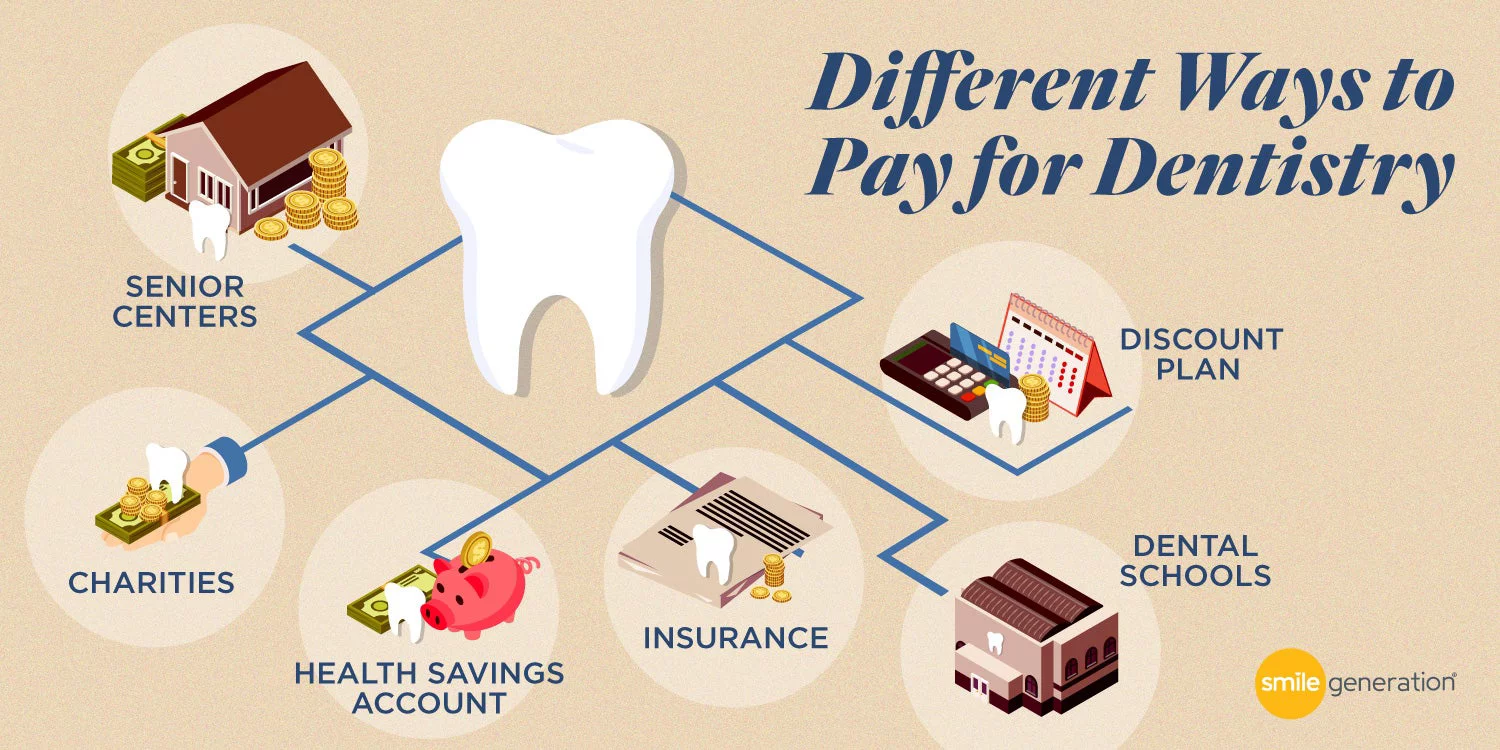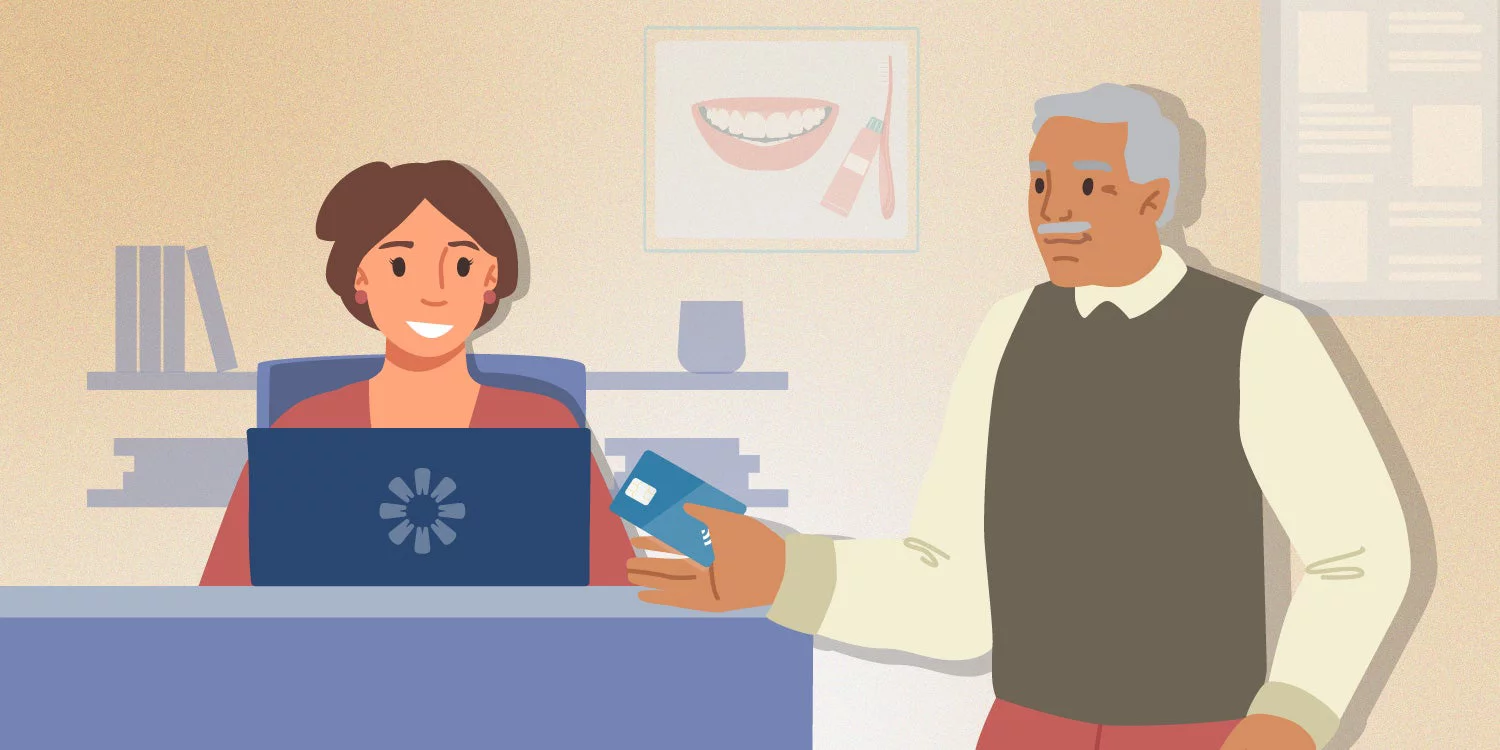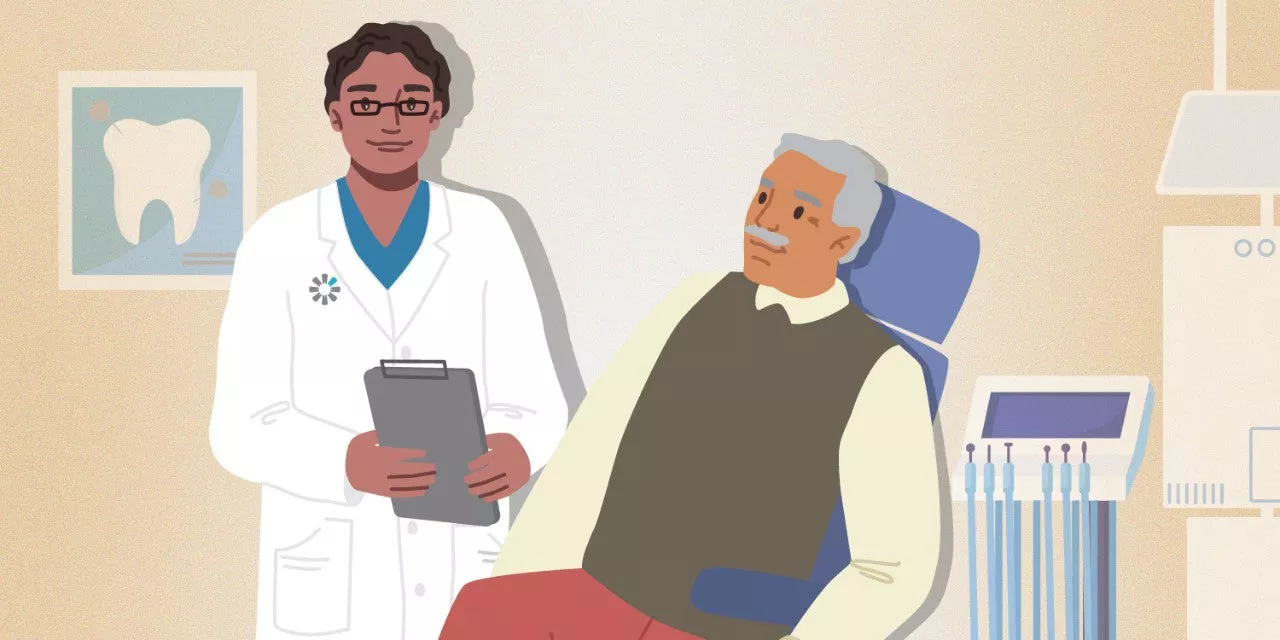Dental care is a crucial part of your oral health through every stage of your life. But as you age, routine dental appointments become even more important because of how your teeth impact your quality of life. As a senior, your oral health can be affected by common systemic diseases that occur as you age.
While Alzheimer's Disease has a negative effect on your oral hygiene, this disease intertwines with mouth health more seriously than just forgetting to brush. Prolonged inflammation in the gums can actually increase the risk of developing Alzheimer's in the first place. This emphasizes how crucial dental care is not only for mouths but also for brain health. The Mouth-Body Connection continues to become even more evident as you get older.
But even though regular visits with your dentist are important to keeping your teeth functional, paying for the dentist can continue to be a hurdle because dental expenses are not free for seniors in the United States. You may have just lost your regular dental coverage if you are recently retired. Medicare only covers particular dental procedures, which will likely not meet your dental care needs.
Fortunately, there are programs and financing options for
seniors to help make dental care more affordable.
Understanding Medicare and Dental Coverage for Seniors
If you are over the age of 65, you qualify for a federal insurance program called Medicare. In general, Medicare does not cover dental expenses. While basic Medicare plans only cover hospital or other medical needs, there are some dental instances that can be covered through Medicare if it affects a needed medical treatment.
Medicare will only cover a dental procedure if it is linked to a covered medical procedure. An example of this is Medicare will cover the treatment of a tooth infection if the patient is going to receive an organ transplant. With such a major surgery, there can be no presence of infection in the body, making this dental treatment necessary before the medical procedure covered by Medicare can take place.
Though Medicare helps with dental needs if they are directly related to a medical issue, it does not cover dental care, such as:
Regular appointments with your dentist can help prevent more serious oral health issues. However, Medicare will not cover routine, preventative dental visits, leaving large gaps in coverage for seniors who need dental care on a routine basis.
Supplemental Dental Insurance Options for Seniors
Because of the lack of dental coverage through Original Medicare, there are different routes to take with supplemental dental insurance to make sure preventative care and other dental care needs are met for seniors and retirees.
A couple of options include:
Medicare Advantage Plans: One way to get dental coverage through the Medicare program is by signing up for a Medicare Advantage insurance plan. These insurance plans bundle the benefits of Medicare Part A, B, and D in most cases and go through private insurance companies approved by Medicare. If you want to use Medicare for your medical needs, this can be the best dental insurance option for seniors already on Medicare. While not all of them offer dental care, most do, and you can find the plan that is right for you.
Private Stand-alone Insurance: If you do not want to coordinate a supplemental dental insurance plan with Medicare, you can purchase a stand-alone policy through a private insurance company. Be sure to add up the total cost of monthly premiums, co-pays, and the reduced cost of services you know you will use to get a picture of how much you will pay for a year of dental coverage.
Dental Discount Plans for Seniors
As a retiree, gaining dental insurance may be more difficult to get or to pay for than you were expecting when you planned for retirement. However, seniors can still get the care they need by asking their dentist about using a dental discount plan.
Through your dentist, you can get access to significant discounts on routine visits, fillings, and cleanings. The same preventative services that are not covered through Medicare can be provided through your dentist at a discounted rate. Depending on what your dentist offers, it is even possible to have denture preparation treatments and be fitted for dentures at a lower cost.
Paying out of pocket for dentures can be difficult, especially when you are on a fixed income. Low-cost dental care for seniors through a dental discount plan removes added out-of-pocket costs like co-pays and deductibles.
Free or Low-Cost Dental Care Options for Seniors
While resources can vary between states, seniors can find dental care programs that can greatly reduce the cost of procedures and services they need. Low-cost senior dental care options include:
- Senior centers: Through senior centers, individuals can find special resources in their area that can impact their lives. Finding out about senior dental care or being connected with a dentist for the elderly can help you get the dental care you need at a price you can afford.
- Dental schools: Seniors can find drastically reduced costs for dental services through a local dental school. As student oral hygienists and dentists need patients to perfect their skills, the dental school will typically offer an array of services for a small price.
- PACE (Program for All-Inclusive Care for the Elderly): The Medicare/Medicaid program can help the elderly find more affordable health and dental care. While PACE does not provide free dental for seniors on Medicare, which includes paying a monthly premium, the payments are based on their income and will give seniors greatly reduced costs for their dental care. One requirement to enroll in this program is to be eligible for nursing home care.
- Local non-profit or charitable organizations: Depending on what types of nonprofits and charities you have in your area, it is possible to find reduced-cost or even free dental care for seniors on Medicare. Ask your dentist if they know of any programs in your area that can help you with the cost of dental care.
Leveraging Retirement Benefits for Dental Care
Dental care is expensive, especially if you need to have teeth removed and are being fitted for dentures. Stacking up your retirement dental benefits with dental care insurance or other discount plans can help keep your money in your pocket.
While you were working, you may have had a high deductible health care plan that allowed you to qualify for opening a Health Savings Account (HSA). You can use the money that accumulated before taxes were taken out in your HSA for any expenses you have now that you are over the age of 65, including your dental expenses.
Whether you have a supplemental Medicare dental plan or a dental discount, your HSA can come in quite handy to pay for co-pays, premiums, deductibles, and percentages of dental services that are not covered.
It is worth noting that there is another way to save pre-tax dollars while you are employed, though it will not be much help to you in retirement. A flexible savings account (FSA) can also let you set aside money each month, but the funds expire at the end of each year if not used.
While employed and contributing to the FSA, you can use the funds to pay for dental expenses. But retirement ends your participation with an FSA immediately, in most cases, so it won't help you pay for dental costs after you retire.
The Key to Finding Senior Dental Care Assistance
While dental care costs are high and your need for more dental procedures is likely increasing, there is no lack of programs, charitable organizations, and in-house dental discounts to make the dental care you need more affordable.
The biggest key to unlocking all the financial help and reducing costs is to ask your dentist or your local senior center where you can find these programs. Your dentist is likely aware of many programs that specifically provide assistance to seniors in your area. As well as providing discount plans and payment plans through their dental office, your dentist is ready to help you get all of the dental care you need, so be sure to ask if they can point you in the right direction to unlock these benefits.
If you do not have a local dentist who can help you find access to reduced dental costs, use Smile Generation’s Find a Dentist tool to discover an experienced, highly recommended dentist in your area. All Smile Generation-trusted dental offices offer Medicare Advantage plans and dental discount plans to lower the price of dental costs for senior patients.
Find your trusted, local dentist today!
- Medicare.gov. (2023, September 24). Programs of All-Inclusive Care for Elderly benefits. Medicaid.gov. https://www.medicaid.gov/medicaid/long-term-services-supports/pace/programs-all-inclusive-care-elderly-benefits/index.html
Smile Generation blog articles are reviewed by a licensed dental professional before publishing. However, we present this information for educational purposes only with the intent to promote readers’ understanding of oral health and oral healthcare treatment options and technology. We do not intend for our blog content to substitute for professional dental care and clinical advice, diagnosis, or treatment planning provided by a licensed dental professional. Smile Generation always recommends seeking the advice of a dentist, physician, or other licensed healthcare professional for a dental or medical condition or treatment.










